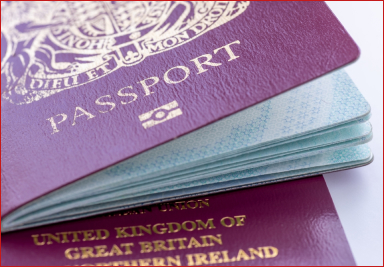The economic impact of Turkey’s Citizenship by Investment (CBI) Program has become a focal point of discussion among policymakers, investors, and scholars alike. Launched in 2017, the CBI program aims to attract foreign direct investment by providing citizenship to investors who meet specific criteria. This initiative not only enhances Turkey's attractiveness as a global investment hub but also significantly contributes to its economy, stimulating various sectors and promoting socio-economic development.
Since its inception, the CBI program has led to a surge in foreign investments across different industries in Turkey. Investors are drawn to the country due to its strategic geographic location, vibrant economy, and diverse market opportunities. With its bridging position between Europe and Asia, Turkey offers a unique advantage for businesses looking to expand their operations into both markets. The influx of foreign capital through the CBI program has not only bolstered economic growth but also enhanced Turkey's global competitiveness.
One of the most significant aspects of Turkey's CBI program is its role in increasing real estate investment. As part of the program, foreign investors are encouraged to invest in Turkish real estate, which has seen a remarkable transformation in recent years. The construction and real estate sectors have experienced exponential growth, leading to the development of modern infrastructure, residential areas, and commercial properties. This boom not only provides housing and workspace but also generates employment opportunities for thousands of locals in construction, architecture, and related industries. Additionally, the increased demand for real estate has contributed to the overall value of properties in Turkey, boosting the local economy and enhancing the country’s image as an attractive destination for investment.
The economic impact of the CBI program extends beyond the real estate sector; it has also been instrumental in revitalizing tourism. Turkey is renowned for its rich cultural heritage, historical sites, and breathtaking landscapes. By attracting foreign investors, the CBI program has facilitated the development of luxury hotels, resorts, and tourism-related businesses. This influx of investment has not only created jobs within the hospitality sector but has also enhanced the overall tourist experience, leading to increased visitor numbers. As tourism continues to thrive, the economic benefits ripple through various sectors, including retail, transportation, and services, contributing to Turkey's GDP and overall economic resilience.
Moreover, the CBI program has fostered innovation and entrepreneurship in Turkey. By attracting wealthy individuals and families, the program has created a pool of diverse talents and skills, encouraging knowledge transfer and new business ventures. Investors often bring unique perspectives and experiences from their home countries, which can lead to the establishment of innovative startups and collaborations within the Turkish market. This entrepreneurial spirit not only stimulates economic growth but also promotes a culture of innovation that can drive Turkey's competitiveness on the global stage.
The CBI program has also had a positive impact on Turkey’s financial services sector. As foreign investors seek to manage their assets, the demand for banking, legal, and financial advisory services has increased. This growing need has prompted local firms to enhance their service offerings, creating a more competitive and robust financial ecosystem. The integration of international clients into Turkey’s financial services landscape not only fosters economic growth but also encourages the adoption of best practices and global standards, benefiting the entire sector.
In addition to direct economic benefits, the CBI program plays a vital role in enhancing Turkey’s geopolitical standing. By attracting foreign investment, Turkey strengthens its economic ties with other countries, fostering bilateral relationships that can lead to increased trade and collaboration in various sectors. The program positions Turkey as an attractive partner for investment, promoting stability and development within the region. This geopolitical advantage is particularly crucial in a world where economic dynamics are constantly evolving, and countries must navigate complex global challenges.
Furthermore, the social impact of the CBI program cannot be overlooked. As foreign investors settle in Turkey, they contribute to the local community by creating jobs, supporting local businesses, and engaging in philanthropic activities. Many investors take an active interest in social initiatives, funding projects that improve education, healthcare, and infrastructure in their new home. This engagement not only enriches the lives of local residents but also fosters a sense of community and connection among diverse populations, enhancing social cohesion in the country.
The CBI program also serves as a tool for Turkey to diversify its economy. By attracting investment from various sectors, Turkey reduces its reliance on traditional industries and fosters a more balanced economic environment. This diversification is particularly important in times of economic uncertainty, as it allows Turkey to adapt and respond to global market changes. The influx of foreign capital through the CBI program encourages investment in emerging sectors such as technology, renewable energy, and healthcare, paving the way for a more sustainable and resilient economic future. While the CBI program presents numerous economic benefits, it is essential to recognize the challenges and criticisms associated with it. Concerns regarding the potential for money laundering, tax evasion, and the integrity of the citizenship process have been raised. To address these issues, the Turkish government has implemented strict due diligence measures and compliance standards to ensure that the program attracts legitimate investors. By enhancing transparency and accountability, Turkey aims to maintain the integrity of its CBI program while continuing to promote economic growth and development.
In conclusion, the economic impact of Turkey’s Citizenship by Investment Program is profound and multifaceted. The program has successfully attracted foreign direct investment, revitalized various sectors, and fostered innovation and entrepreneurship. By enhancing Turkey's geopolitical standing and promoting social engagement, the CBI program contributes to the country's overall development and resilience. As Turkey continues to navigate the complexities of a globalized economy, the CBI program remains a vital tool for fostering economic growth and ensuring a prosperous future. The journey of transformation that Turkey is undergoing through this initiative serves as a testament to the potential of strategic investment programs in shaping economies and enhancing the quality of life for all residents.






























